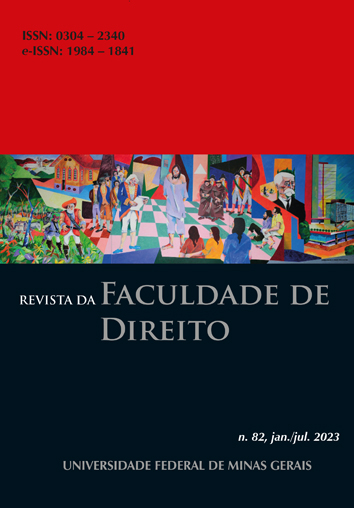BRIEF ASSESSMENTS ON LEGAL PERSONALITY AND LIABILITY: A DISCUSSION BETWEEN ARTIFICIAL INTELLIGENCE TECHNOLOGIES AND PATENTS IN EUROPEAN COMMUNITARIAN LAW - DOI:10.12818/P.0304-2340.2023v82p183
DOI:
https://doi.org/10.12818/P.0304-2340.2023v82p183Resumen
The research was based in an interdisciplinary approach about the legal ethics involved in the Digital Era, especially concerning the use of Artificial Intelligence (AI) in patents’ development and rights as an important problematic. The studies encompassed a view on the liability issue, within the broad framework of Contractual Law and licensing. The research addressed the different theories and perspectives on legal capacity, private law, and personality rights, illustrating the theoretical justice concept to substantiate and underlie the ethical problematics arising from the use of AI. This research work encompassed the advantages and disadvantages involved in the AI scenario, demonstrating the enhanced performance and outcomes in the industrial property area, accordingly to business practices and techniques, and ethical parameters that should be pursued by the society, to develop a transparent, reliable, trustworthy, and explainable use of AI as a tool especially related to the patent system. The studies summarily approached the regulatory aspects and legislative policies of AI in the International and European contexts, providing a comparative law picture. To achieve this multidisciplinary endeavor, a perspective also centered on data analysis had to be applied, employing mainly the functional method and schemes, with the purpose of better addressing the use of AI in intellectual property and its consequences. It was presented a small introduction to the relevant concepts of the scenario of AI, as well as the readers will find the contextualization of some other concepts throughout this work; It was introduced – and necessarily criticized— the idea of an obligatory insurance scheme for these AI technologies to be “pursued” by the AI developers and companies; The work tried to approach some ethical, transparency and legal issues involved in this problematic subject, and to achieve this, some comments about the contractual framework and labor changes were encompassed here, in order to reach the main conclusion of the use of AI as a tool to help the “ delivery” of innovations and improvement of the Patent system as a whole.




















